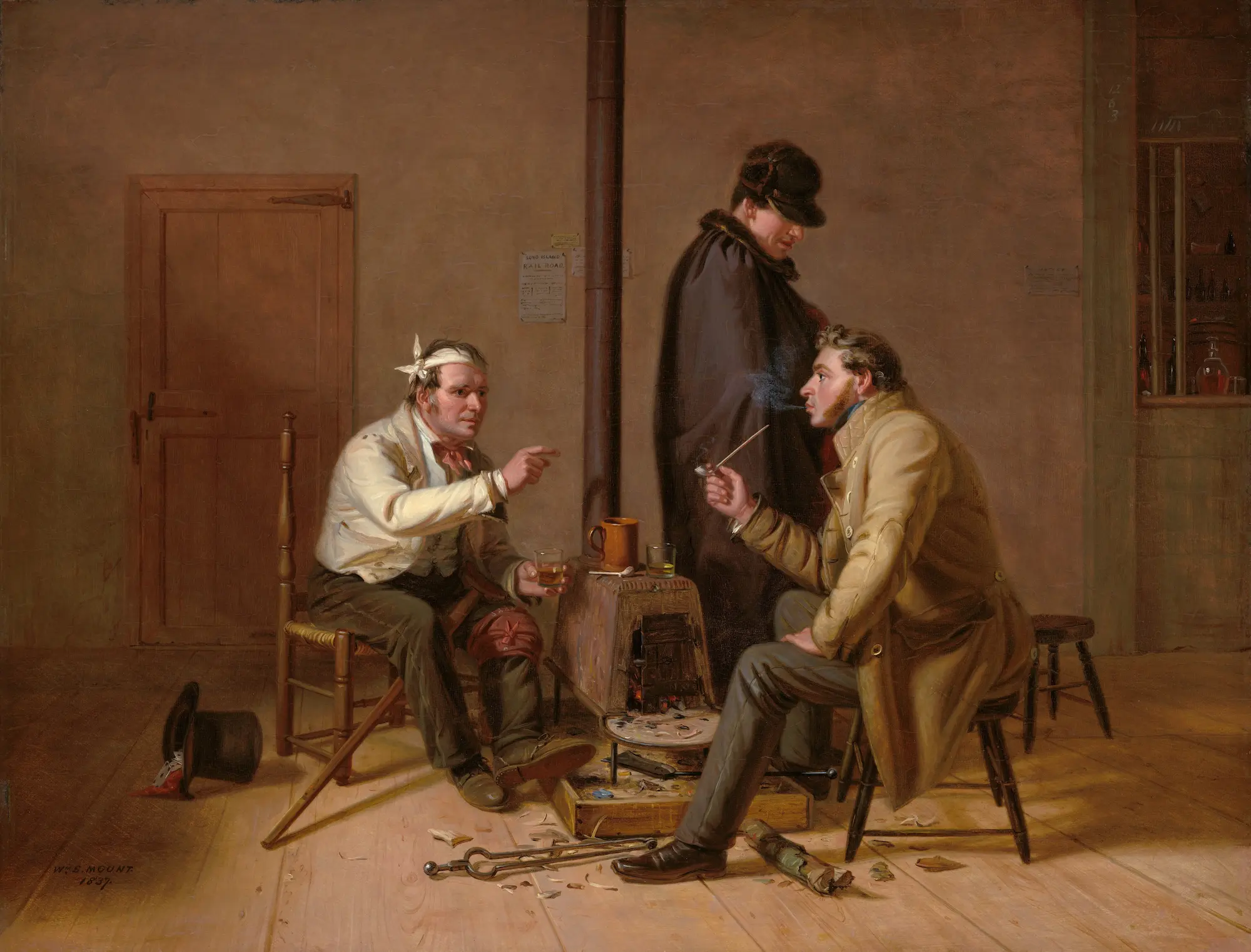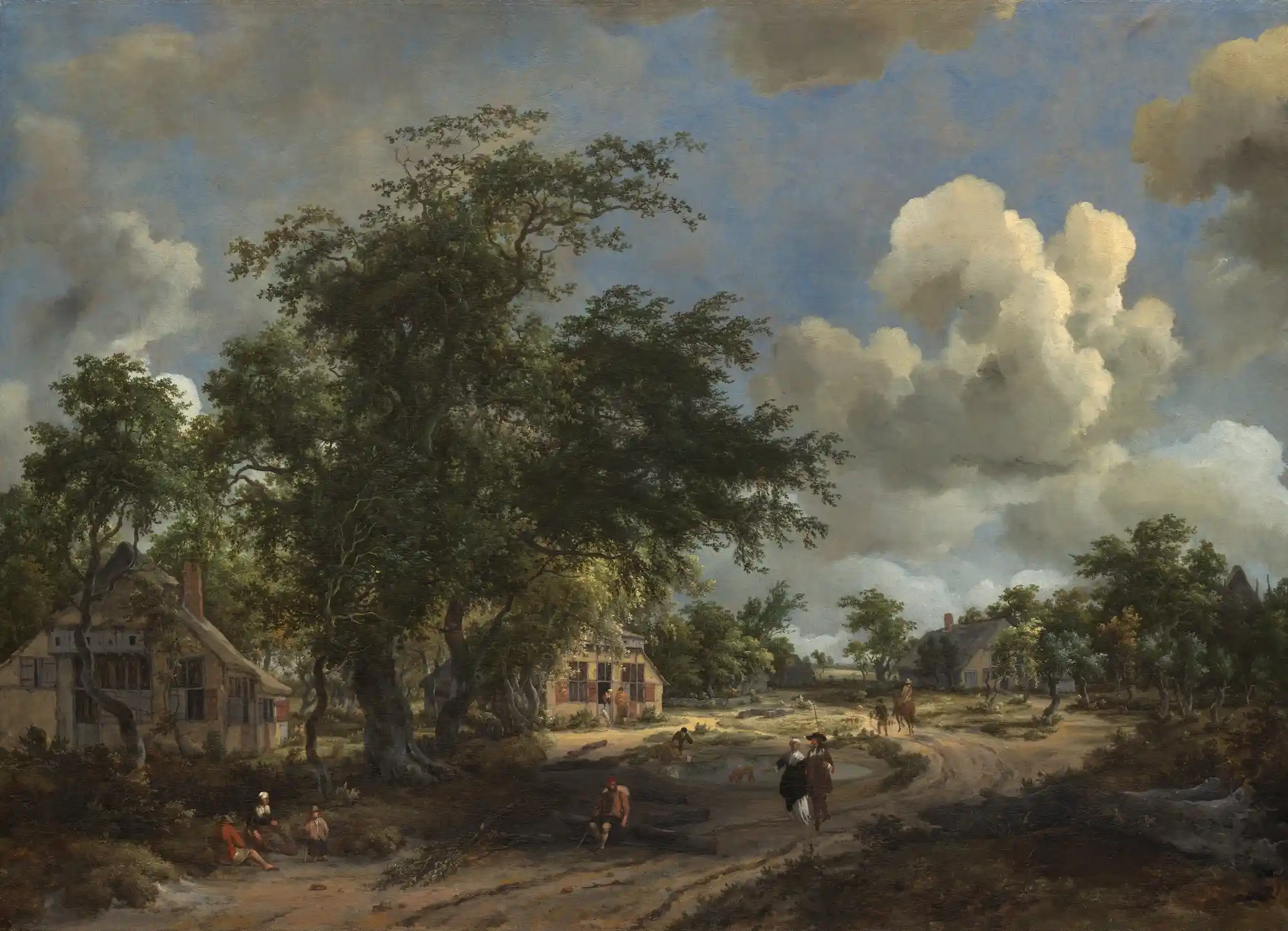
A View on a High Road, by Meindert Hobbema
Under Branches
There was a tree in our yard. It was our yard just as it had been the yard of the couple who planted the tree and propped it up with stakes so that if it stooped, it wouldn’t stoop too low and die there, leaning sadly toward the grass and its roots. But it was always a sagging kind of tree. The couple didn’t plant it to raise the value of the property. If they had they would have cut it down and started over with a more upright sapling. No, they held close to this tree as some people hold to dogs or children. And because they couldn’t have children and didn’t care for dogs, the couple raised a tree.
I never met them. They may have had several children, and dogs and cats and other things besides. But they had planted the tree, and not the investor we bought from with his royal flush of properties, or the owners before him who would smoke for hours in the garage so that the walls and ceiling were stained beyond their years. Maybe, I thought, they had been a man and a woman like you and me. A dark eyed and wistful sort of girl and a boy who wants his mother. Each of them sagging under the weight of the world and seeing in the tree an opportunity to raise something, if nothing more than a branch, in defiance of some other something that cannot be named but heaps troubles on our shoulders like mounds of dirt. Their shoulders. Our troubles were to come and they heaped higher on your shoulders than mine, so that you stooped first and I later. What did you see down there, I wonder.
It was Saturday and a neighbor I had only ever waved to came by to see if he could borrow a post hole digger. Putting in a new mailbox, he said. I brought him around to the shed where I stored the tool and as we passed the tree he stopped to look up at it. You did not have to crane your neck to get a good view of its highest boughs, so low they hung. A glance upwards would do. But why stop for a tree like that? He pulled a rag from his pocket and wiped his forehead and I noticed then how old he was. He’ll struggle to dig that hole, I thought, and we moved on to the shed. I handed him the tool and asked him if he had known the folks who lived in our house when it was newly built.
“Them?” he said, staring hard at the ground. He seemed to be drawing his memories up from the soil. “Well I knew them like any neighbor. And we spoke times.”
“And they planted the tree?” I asked, pointing.
“She did. His wife. She died in that house and he moved away.” He did not look up to see where I pointed, and was carving lines in the dirt with his boot. I felt he had more to say and would say it later if I let him go for now. He’d have to bring the tool back, after all.
I watched from a window in the kitchen as he replaced his old mailbox with a new, pristinely black one. He did not struggle with any part of the job and after it was done he put the tool aside and sat down on the curb. I thought he would drink or smoke but he just sat there shaking with age. He only stopped shaking when he was digging, and I wondered would he dig his own grave and be steady for that, too.
It was late when the old man finished and even later when he returned with the tool. He came to the back door and knocked and we went together to the shed, only this time he did not pause at the tree but marched on ahead of me. “Sir,” I said, as I sometimes did to men who have been through much and who wear it on their brows and in the ley lines etched into their foreheads. He turned and clicked on a flashlight. It was not so dark to warrant a flashlight.
“I cain’t see you there, boy. Come out from under that tree.” When I did he turned out the light and put a hand on my shoulder. He was not looking at me but past me, at the tree or into history, seeing nothing maybe but the series of dim and half forgotten images I had conjured with my questions. And I would have them clearer yet.
“Who was she?” I said. He met my eyes, his hand still on my shoulder and steady as though he were again digging only it was through something other than dirt now. Then he spoke.
“Once, she come out in the middle of the night and dance naked ‘round that tree. And she was holding hands with spirits and singing but not in words and the branches closed around her, and then it was only flashes of white behind the leaves. I saw it from my window. Next morning her husband run outside with an axe like he would chop it down, but she hung onto him crying and well he didn’t. I watched nights to see if she would do it again, but she didn’t and she died a year later. Pneumonia.”
A door whined open behind us and he looked past me again. It was you, come onto the porch to watch the night deepen. You may not have seen us, but he saw you. In you a dim and half remembered image became vivid, distinct. The woman who danced around the tree and died, emerging pale and skeletal from the charnel house to twirl once more about that squat earthen obelisk. A bodied ghost, holding hands with spirits. Dancing, laughing, singing, weeping.
You went inside. The old man turned without saying anything and walked off into the woods behind our home. I followed him at first, but soon made my way back to the shed to replace the tool. I could not accompany him further, though there would come a time for me to turn and withdraw quietly into my own dark woods. I did not yet see in you what he saw. I hardly saw at all. Walking back to the house, I stopped at the tree and looked up at the stars gleaming whitely through the gaps in its branchwork. How many gleaming eyes of God have winked out and vanished over the heads of trees like this one?
Later—when the old man our neighbor was long dead, the contents of his house long sold or discarded, the house itself passed along from unseen tenant to unseen tenant, the mailbox dull and rustcolored with time and never again replaced—the tree began to rot. I remember peeling away the damp moldblack bark to find spread over the diseased flesh of the trunk a vast network of life that was not the tree’s. I remember waiting until you were away to take a saw to it, and telling you why I did it and reading in the lines of your face the words how dare you. How dare you how dare you.
February 15, 2024
About the writer
Dylan Reber is a writer and editor. His stories have been published in The Columbia Review, Eclectic, and Four Palaces. He lives in Georgia, where he is working on a collection of short fiction.
Further considerations
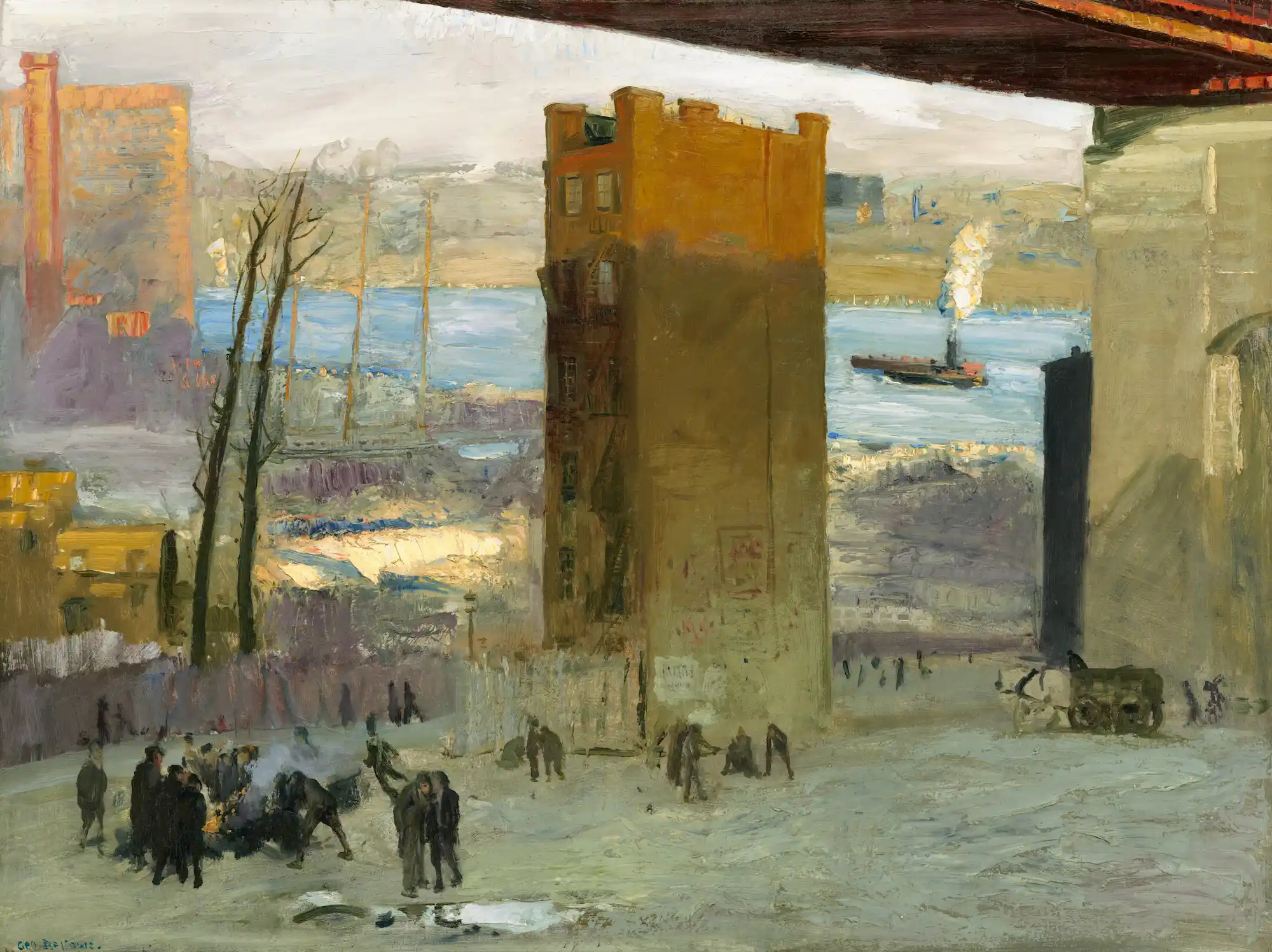
Someone Else's Grief and Job Before the Job
By Ace Boggess
I’ve never walked in driving rain // as she does now, the noise so sudden & // vast as to become its own silence.
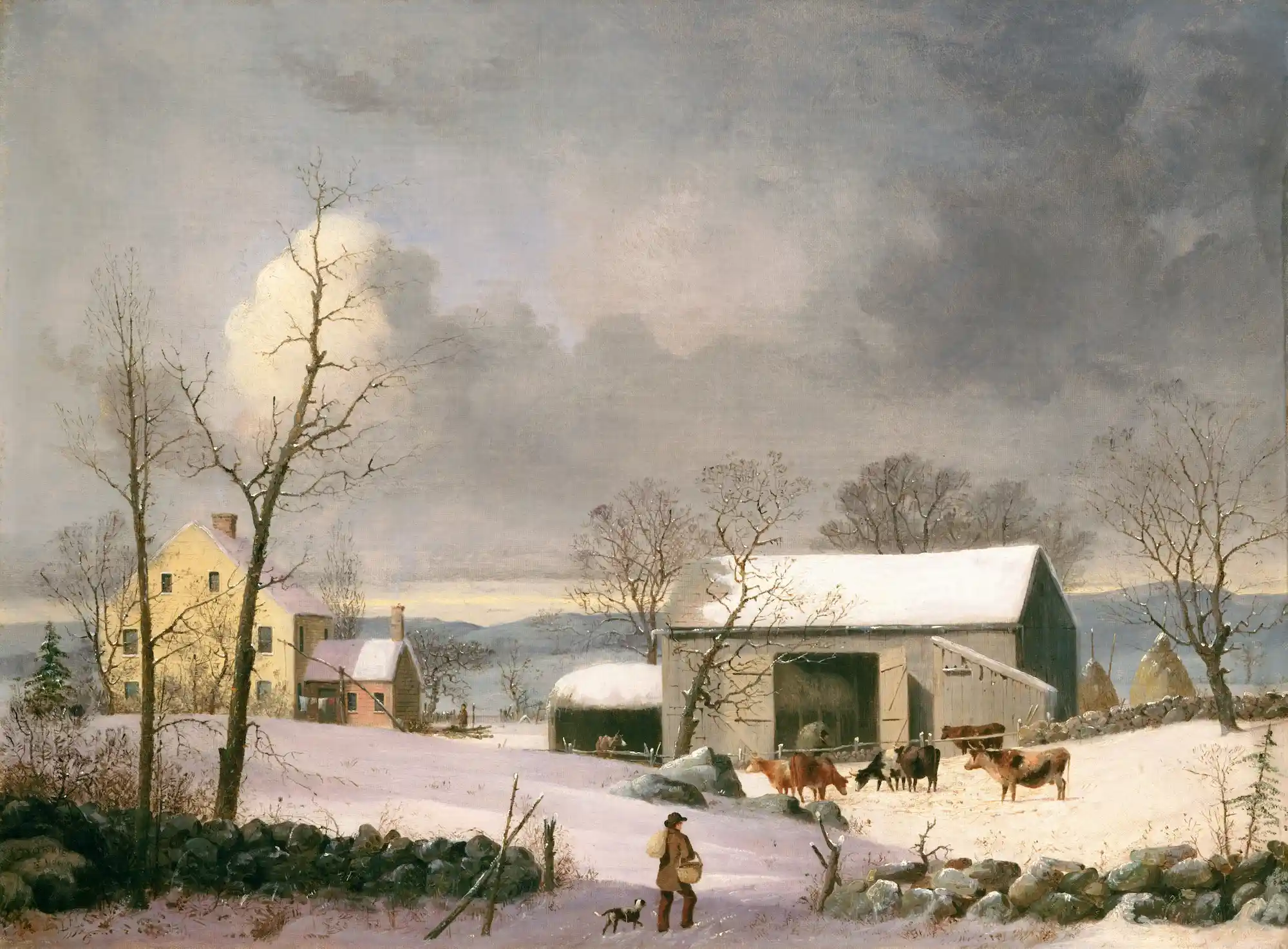
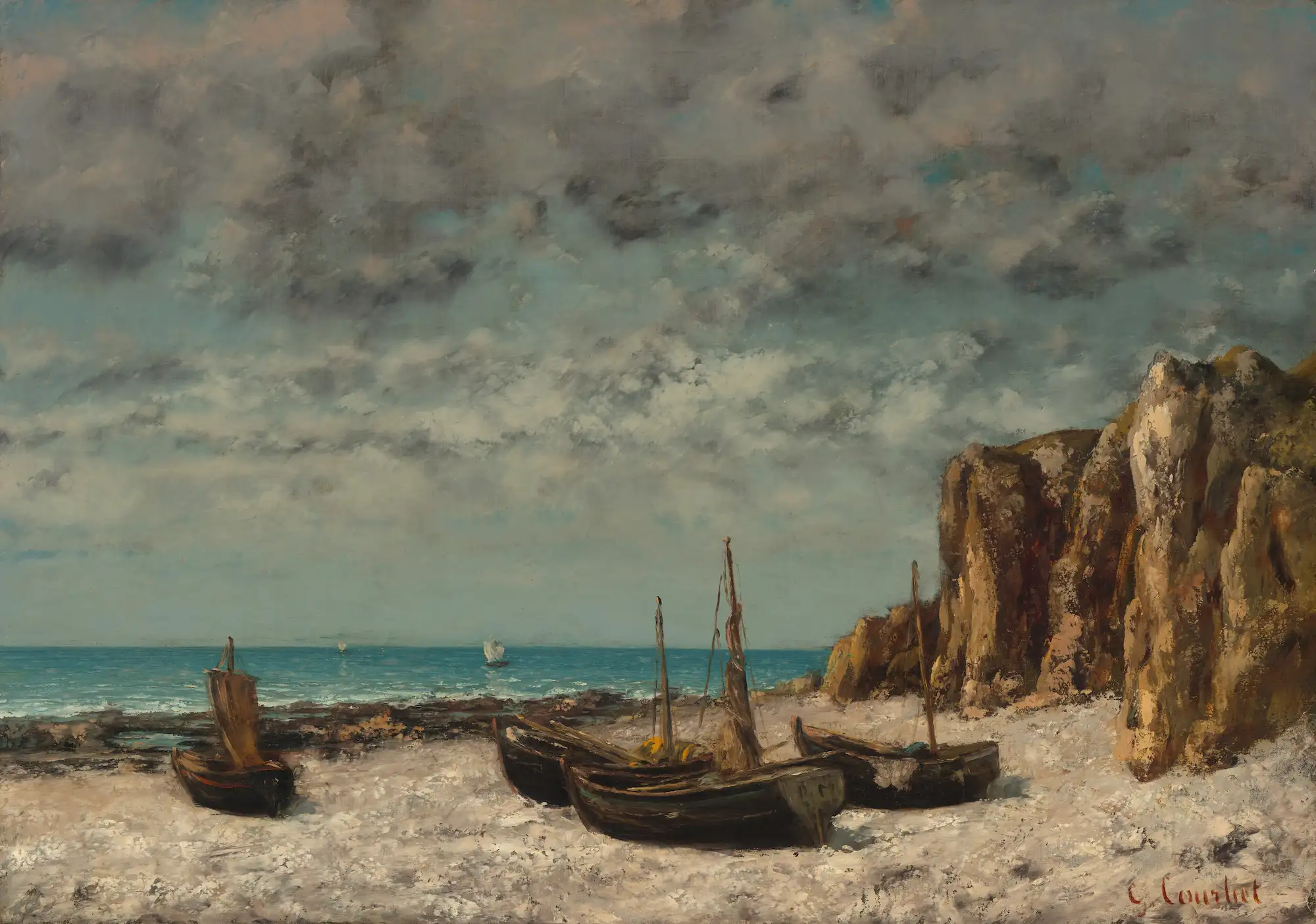
Lament of the Perfectionist
I am building a boat in the basement // and there are still so many details to work out.
